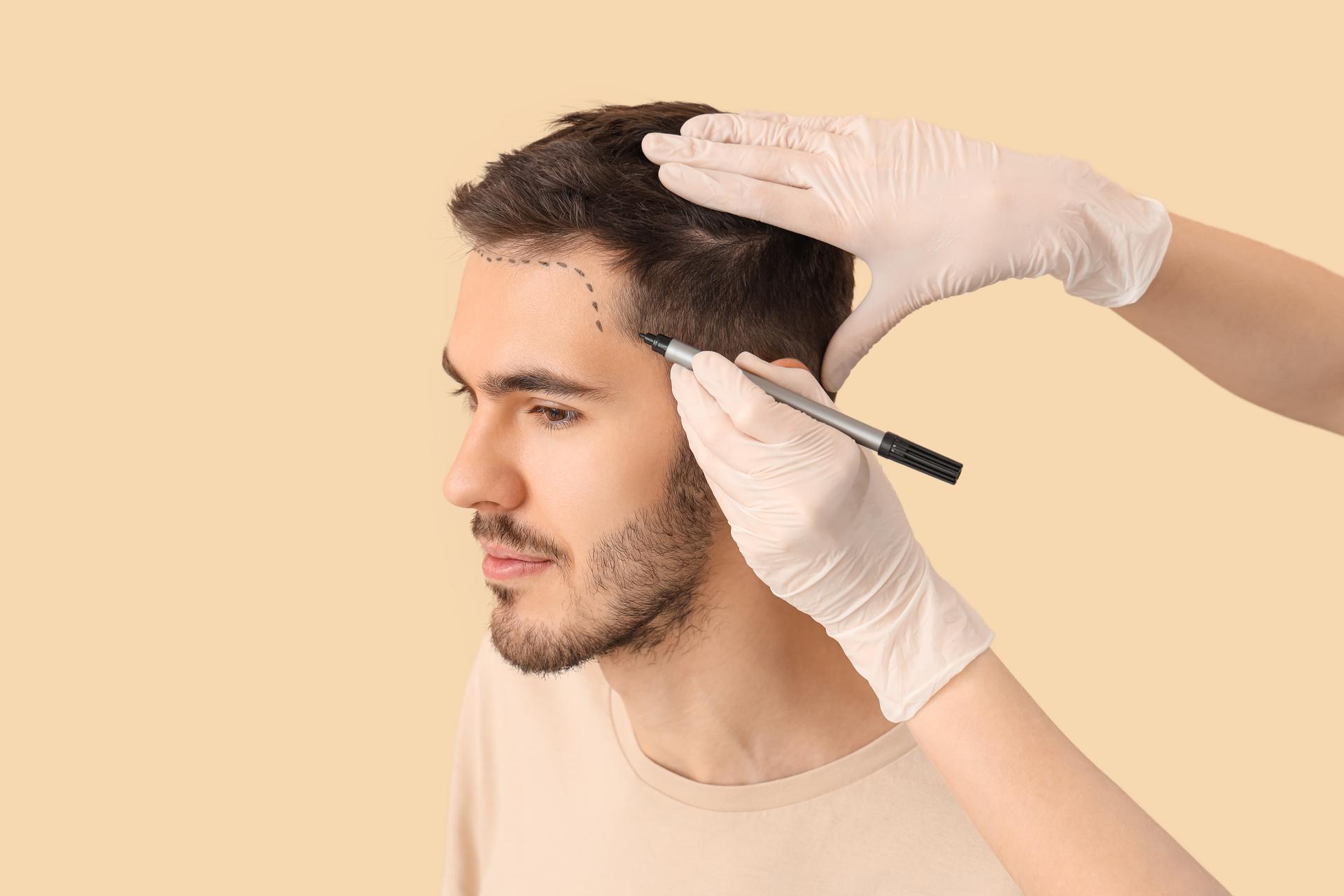You might have read that creatine, a popular sport, and nutritional supplement can lead to hair loss. Is this true? While not directly responsible for hair loss, creatine can affect your DHT hormone levels, leading to hair loss. Before diving deep into the topic, let us first understand how creatine functions in the body.
Creatine Function
Creatine is naturally produced by your kidneys, pancreas, and liver and is an important energy source for your cells. You can acquire creatine through your diet by consuming fish and red meat.
Creatine is generally stored as phosphocreatine in your skeletal muscles. This gets broken down and is used as energy during physical activity requiring muscle contractions. Creatine is also available as a supplement in the form of powders, tablets, and liquids. Some people consume these creatine supplements to increase their athletic capability and muscle mass.
Creatine Side Effects
Before starting a habit of ingesting creatine supplements, you must understand its possible side effects, some of which are listed below.
- Water Retention: Consuming creatine can cause water retention in the body that can lead to short-term weight gain. Water retention can also increase the risk of cramps and dehydration. However, research does not back up all these concerns.
- Kidney Problems: When the creatine levels remain high in your body, you are more susceptible to kidney damage. So, it’s better to avoid taking creatine supplements if you have underlying kidney issues. However, researchers found that in healthy individuals, creatine has no negative effects.
- Safe for Adults: When taken in the appropriate doses, creatine is safe to use in adults and is found to help produce better ergogenic benefits than other supplements. Also, using creatine according to the proper guidelines is safe, ethical, and effective.
- Use Sparingly in Adolescents: For adolescents, it is best to discuss with your doctor first before starting a creatine supplement. This is because the safety of creatine supplements in adolescents is yet to be studied in detail, and most adolescents tend to ingest some quantity of creatine as part of their daily diet.
Research on Creatine and Hair Loss
Not enough research conducted on this topic indicates that taking creatine supplements leads to hair loss. In contrast, most evidence relating to creatine and hair loss is anecdotal, i.e., derived from people’s personal experiences.
See Also: Is It Normal to Lose Hair at the Age of 23?
Creatine and DHT Levels
A study of college-age rugby players found high dihydrotestosterone (DHT) hormone levels after three weeks of creatine supplementation, which is linked with hair loss. The DHT hormone is derived from testosterone, the male reproductive system’s main sex hormone, which plays a huge role in forming body hair and muscle mass.
How is Creatine Connected to Hair Loss?
High creatine levels can indirectly cause hair loss. Basically, creatine supplements can cause an increase in DHT hormone levels, which affects the enzyme that alters testosterone to DHT. This results in hair loss.
Usually, hair follicles are grown in three different cycles, the growth phase, resting phase, and hair fall phase. However, when the DHT levels are elevated, it increases the rate of DHT hormone binding to hair follicles which shortens the hair growth phase. This leads to weaker and thinner hair strands, which in turn causes rapid hair loss.
In the study quoted above, the researchers only observed an increased DHT level and did not focus on hair loss. However, it’s important to know that since DHT has a significant role in hair loss, an increase in DHT levels can put you at risk for hair loss. More research is needed to ascertain the exact role of creatine in hair loss.
See Also: How Do I Know If My Hair Loss Is Stress-Related?
When to Get Medical Help
Creatine supplementation does not directly cause hair loss. However, if you experience hair loss while taking creatine supplements, consult your doctor at the earliest. Additionally, visit your doctor if you experience abrupt, patchy hair loss or see large clumps of hair falling while washing or brushing hair.
Overall, as per the current data available, creatine supplements are safe for most adults. However, if it leads to an elevated DHT level in your body, it’s better to avoid using creatine supplements or talk to a doctor before starting it, especially if you are susceptible to hair loss.
New Jersey Hair Restoration Center is a renowned hair loss treatments provider in NJ with a skilled and highly experienced team of hair specialists. If you are looking for a hair specialist doctor in NJ and are concerned with hair loss, we have various techniques such as FUE hair transplant and FUT hair transplant, which can be personalized as per your condition to help restore your hair. Schedule an appointment with us today so that we can help you.


